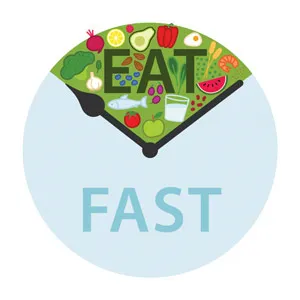What Is Fasting?

Fasting is an ancient religious art that deals with abstaining from food, drink or both in order to fulfil a religious cause. This art of fasting has been practised for thousands of years by a number of faiths including Jews, Buddhists, Christians and Muslims.
In recent times, this act has evolved from just being a religious ritual to become a popular weight loss routine as it can be used for increased metabolism benefits and helps to suppress the appetite. Thanks to enthusiasts who have established the role of fasting in weight loss, everyone seems to be getting involved in this routine. This brings us to the questions: is fasting good for you? And does fasting work in weight loss?
The short answer to both questions is yes! However, there are many things to consider to get make a proper decision and you’ve probably heard different myths about how fasting is dangerous to your health and how it can lead to a stress and weight gain. Well, to set the record straight, the potential benefits of fasting, if done right, are amazing and they are way beyond just losing weight.
How Does Fasting Effect Weight Loss?
If you’re looking to use the technique of fasting to increase weight loss, it is important to establish how fasting effects weight loss. There are four different common types of fast routines that help to burn fat fast.
Time restricted eating: This routine involves calorie consumption for a few hours at certain times of day (4 to 6 hours), and then restricting the diet the rest of the day.
Fasting mimicking diet: Instead of eating nothing, this is a type of diet that involves eating plant-based foods with few calories for several days in the month.
Periodic fasts: This involves drinking fluids free from calories or with very little calories for a long period of time to put the body in a fasting mood. This is the most extreme, and potentially dangerous, of all routines and can last for several days.
Intermittent fast: The intermittent fast deals with eating fewer calorie-dense foods (500 calories or less) or eating no food intermittently. Intermittent fasting for weight loss is one of the most popular meal prep plan.
Is Fasting Safe?
Fasting is often seen as a tricky subject, but if done correctly it can be safe. If you are planning on starting a fasting diet, first make sure you follow an appropriate plan for you and your body and also make sure it is reasonable and you will not starve. It is also recommended to consult your doctor if you think it might impact your overall health. This is because just like the saying, one man’s food is another man’s poison; fasting is good for the young and agile but bad for children, the old, people with an eating disorder and people who are underweight.









